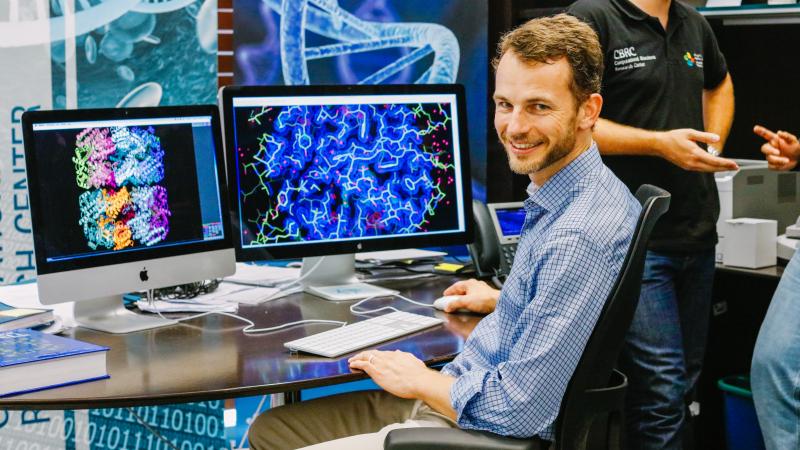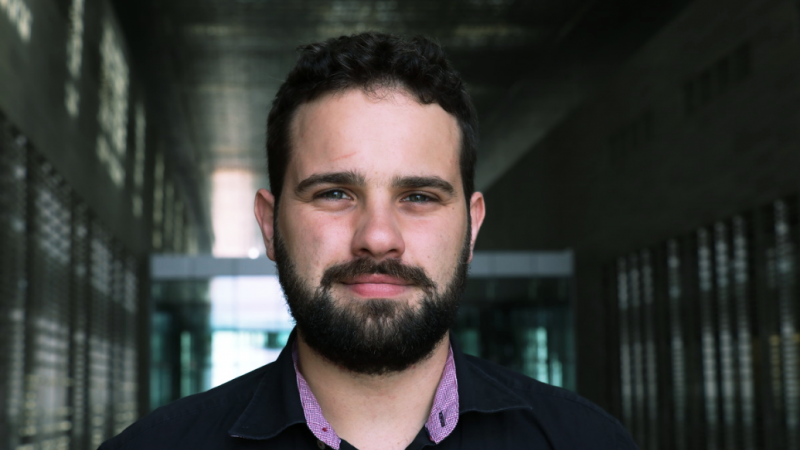By Rose Gregorio
For Arnaud Hungler, CBRC's new systems administrator, an innocuous scientific calculator he received when he was 10 years old sparked a lifelong passion that eventually brought him to KAUST.
"I was creating games on it," Arnaud shares. "It got me interested in coding and programming. After that my grandparents got me a computer and I started making even more complex games."
His interest in programming led him to initiate various projects such as attempting to develop an entire neural network from scratch using C++. "I spent about three years on that project, working in my spare time," he says. It was unsuccessful but that experience has taught Arnaud an important life lesson. "Well, sometimes things just don't work out and that's okay."
During his time studying civil engineering at Ecole de Mines de Saint-Etienne in France, Arnaud also spent months interning at the French Ministry of Defense.
"I was doing low-level programming," he says, explaining that it doesn't mean he was assigned to do menial tasks. "I was working with a programming language that let me program machine code directly into the hardware. It was mostly on network security and embedding systems."
Arnaud first learned of KAUST when he read a job advertisement for a research technician to join Associate Professor Stefan Arold's research group in CBRC. He applied and was accepted. While with Professor Arold's Structural Biology and Engineering Group, he created various tools to help biologists in their research. One of his most successful tools is ContaMiner, which he developed using Python and shell programming languages. ContaMiner is a software that can detect contaminants in protein crystals. This problem is particularly important for structural biologists, because it can cause substantial loss of time and efforts, and bring the risk of publishing erroneous data. Presently, it is being used by hundreds of people around the world, and gets approximately one new submission a day.
Despite his success in developing tools for biology, Arnaud shares that he was ready to take on a new challenge. When he learned that there was an opening for a systems administrator in the Center, he expressed his desire to fill the position. His experience with software programming allowed him to easily diagnose system bottlenecks and solve IT problems. Additionally, he had been collaborating with CBRC Director Vladmir Bajic and had proven his capabilities. It didn't take long for Professor Arold, Professor Bajic and Center Manager Sultan Ahmed to agree that he was the right person for the job.
Arnaud officially became CBRC's systems administrator on March 13, 2018. "I'm overwhelmed and excited to be starting this new role. I'm happy to help anyone in the Center who needs IT support," he says.


